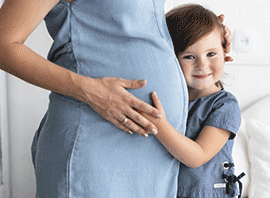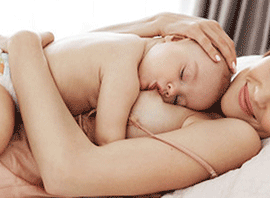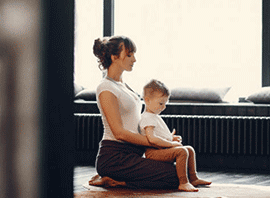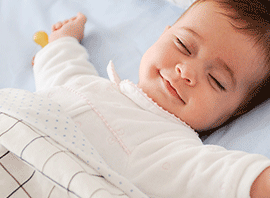Babywearing, a practice ingrained in many cultures for generations, saw a decline with the advent of alternative baby carriers. However, recent years have witnessed a resurgence in its popularity. As more parents embrace babywearing as a primary or secondary carrier option, its benefits and practicality are receiving increased attention. The relationship between babywearing and the baby sleep cycle is particularly intriguing for many parents.
There are two types of sleep that babies, like people in general, engage in: naptime and regular nighttime shut-eye, both vital for a baby's growth. Initially, Infants tend to sleep more, but as they grow into toddlers, the hours spent napping start to reduce until nighttime shut-eye becomes the primary source of rest and rejuvenation. Keeping this in mind, let's assess how babywearing contributes to both naptime and nighttime sleep for babies.
Nap Time
After spending nine months in the mother's womb, listening to her heartbeat and enjoying her warmth, a baby embarks on its journey in the real world. Babies spend more time sleeping than the average person, and as they grow older, the hours spent sleeping gradually transition to nighttime sleep. When babies nap, they seek the comfort of the womb, desiring closeness to the mother's heartbeat and warmth. Babywearing provides the necessary warmth and closeness for babies during naptime.
Night Sleep
Once again, after months of enjoying the warmth and familiarity of the mother's womb, babies become accustomed to that sense of security when they enter the world. Gradually transitioning from spending time with mommy or a caregiver during the day to sleeping at night helps babies adjust to their new environment. Moreover, moving around with a mom, dad, or caregiver throughout the day provides babies with movement and activity, which can contribute to better sleep at night. Consequently, babywearing facilitates the baby's transition to the real world and promotes restful sleep at night.
Babywearing has sparked both excitement and controversy among parents. Some believe it fosters dependency in babies, while others question its practicality in today's busy lifestyles. Like any parenting decision, the choice of babywear should be based on the preferences and circumstances of the parents. If you're able to spend the entire day with your baby, that's wonderful. However, if your schedule doesn't permit it, carving out time in the evenings can still nurture the essential bond between parent and baby.
Incorporate babywearing into your routine at your own pace and savour the precious moments with your little one. Research and anecdotal evidence suggest that babywearing can positively impact a baby sleep cycle, leading to better rest. Moreover, the shared experiences and bonding moments during babywearing are invaluable. Consider trying out a ring sling for convenient and comfortable babywearing. Selecting the perfect ring sling for you and your baby may enhance your babywearing journey and unlock its many benefits.














Validate your login
Sign In
Create New Account